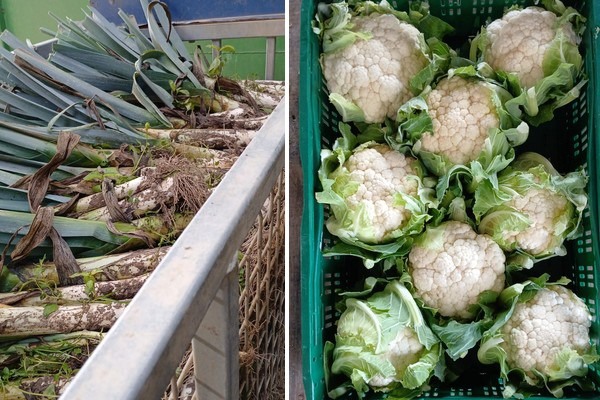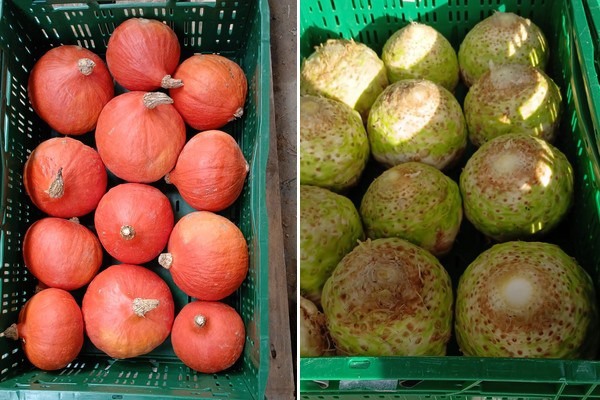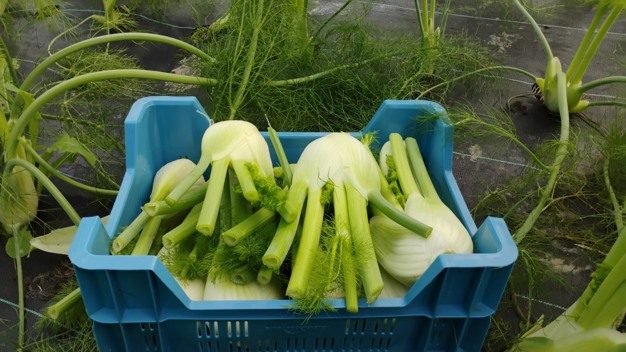The Belgian organic leek market is currently experiencing a slowdown. "Supermarkets are still purchasing volumes, but day trading has come to a complete standstill over the past few weeks," says organic grower Pieter Vandooren. Despite this, he anticipates a shift soon. "We're in talks with an Austrian trader, where they are facing a significant shortage of organic leeks."

Pieter is satisfied with the quality of his leeks. "The leeks are not particularly heavy, but they still have a good size. Earlier in the season, we did see some shoots due to the summer weather, but that's all sorted out now. Prices are similar to last year, around €1.80," he explains. "It's just that the market is stagnant at the moment. This isn't unusual for growers, but it means we need to explore other outlets."

One such outlet is Austria. "Due to the summer floods, they are experiencing a significant shortage of organic leeks. We've been in contact with an Austrian trader and are now waiting for the final agreement. Everything else is ready. It's a great alternative for now, but only for this winter. Normally, Austria produces enough during the winter, but this year's situation has forced them to look elsewhere. I believe we'll see the impact of extreme weather conditions more frequently in the future. Every year, it seems, a different market faces challenges. It's becoming unpredictable. You see it now in Spain as well, and we'll feel those effects this winter. October, November, and December are traditionally quieter months for organic produce, but I expect activity to pick up soon."

The challenges of diversifying in organic farming
In addition to leeks, Pieter's farm in Hooglede, Flanders, is currently producing cauliflower for the frozen industry, celeriac for both the fresh market and industry, and pumpkins for the fresh market. "That's the challenge with organic farming. The markets are relatively small, so you can't specialize in just one crop. Diversifying allows us to keep our staff employed and generate income. However, it's less efficient. You might spend two hours harvesting leeks, an hour on celeriac, and then three hours on fennel. It's good for variety, but it requires different equipment and machinery, which demands a lot of planning and flexibility. But that's just the nature of the business."

Currently, the team is busy harvesting celeriac. "We recently invested in a new machine, custom-designed to lift the tubers from underneath, minimizing losses," Pieter explains. "It streamlines some tasks. Overall, we're busy but satisfied. We've also started growing pumpkins for the first time this year, and the results are promising. While I don't have previous years to compare, the yield is good, and sales are going well. From next year, we hope to establish a regular program with retailers."

Pieter is also seeing success with fennel, cauliflower, and celeriac, largely thanks to contracts with traders and packers. "These contracts are ongoing, and we can adjust our acreage accordingly. However, with leeks, we're more dependent on day trading. About 40-50% of our production is secured through fixed agreements, but we have to find markets for the remaining 50-60%. That uncertainty makes each year exciting," Pieter concludes.
For more information:
Pieter Vandooren
Yokkerstraat 6
8830 Hooglede, Belgium
Tel: +32 472292756
[email protected]










